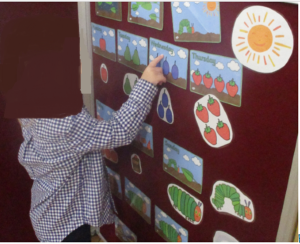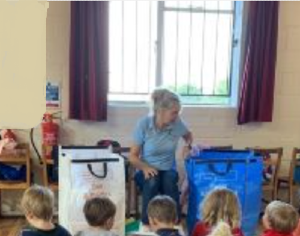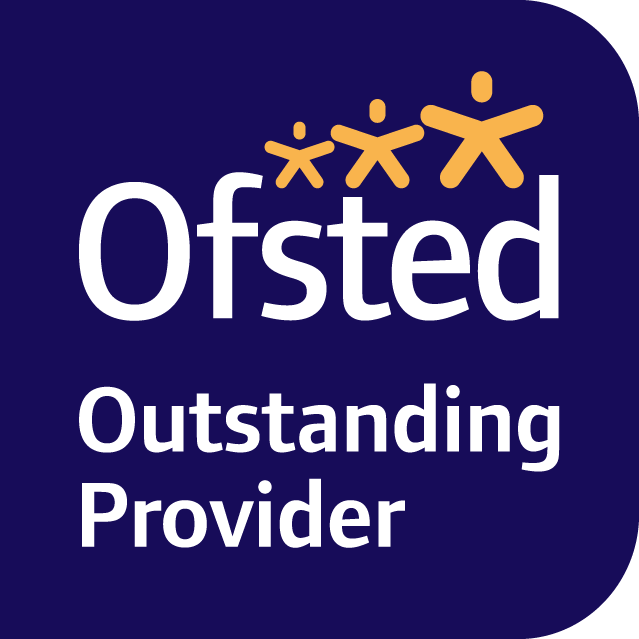Educating Social Responsibility.
The young children of today are the adults of tomorrow and, as such, we here at Little Doves have a responsibility to offer learning experiences that will equip them for their future as well as for the here and now. At this early stage in the children's lives, the most useful preparation that can be given is the opportunity to investigate, discover and learn about the world they occupy. Sensory exploration of water, sand, mud, weather, plants and animals are just a few examples of early learning experiences that can relate to sustainability.
We aim to teach the children in our care to have a sense of hope, positivity and excitement about social responsibility. We do this in several ways, hopefully creating the adults of the future that will take steps to correct the environmental mistakes made by previous generations. At Little Doves we focused on the joy of discovery and learning to live in harmony with the world.
So how do we achieve this:
 1 By teaching the children about weather and climate:
1 By teaching the children about weather and climate:
While learning to be outside in all weather, which is also important to a healthy lifestyle, children can learn to develop an understanding of climate change and shifting weather patterns which are two of the biggest environmental issues facing the world today. We do this by talking to the children and discussing all the different weather we experience throughout the year. We freeze toys in ice so that children can see for themselves how it melts when heated.
2 By teachingthe children about biodiversity:
In the early years children should be encouraged to discover and enjoy nature. We do this by acting out being animals, being plant detectives investigating flowering plants, looking at natural life cycles, building bird feeders and finding out how to care for animals.
3 Water conservation and clean air:
To protect the future of our planet we need to think about how we can save water, clean up our rivers and oceans and cut down air pollution. We use interactive and sensory exploration with our children to learn about water and air. This can be done in many simple ways, for example, by teaching the children to turn the taps off when they brush their teeth, blowing bubbles with soapy water and watching what happens when we breathe onto a mirror.
4 Recycling, re purposing, reducing and reusing:
We encourage the children to save paper by using both sides and we use whiteboards and pens wherever possible. We encourage the children to look after our toys and resources, explaining to them that some resources once used or broken are gone forever. Children are encouraged to recycle using the local authorities large white and blue recycling bags. 
5 Sustainable shopping:
We do this with role play activities, such as, role play shops where the children are encouraged to exchange money for purchases, using ethical logos such as Fair Trade and RSPCA assured farm products. We also asked children to use their maths skills to consider the different types of packaging that would be needed for different sized products.
6 Thinking about food:
We aim to minimise food waste by offering children choices of healthy food and allowing them to develop their maths skills by selecting one or two pieces at a time. We talk to the children about where the food has come from and how far it has travelled. Children take part in cooking activities where they are helped to read recipes so that they use the exact amount of ingredients needed. The children are encouraged to scrap their plates after snack into the food recycling waste bag and we discuss where this goes.
7 Eco-friendly cleaning:
At Little Doves we talk to the children about how we can save water when washing either their hands, plates or toys. In the role play area, children are encouraged to learn how to wash clothes, wring them out and hang them up to dry.
As a pre-school we are currently looking into ways to use more eco-friendly products when it comes to our own cleaning tasks.
8 Being part of a community and caring for ourselves and others:
We understand that pre-school is often the first experience of community life young children have. We have a lot to teach them about how to function happily and be useful within a diverse and inclusive group. We do this with the sharing of chores, teaching children how to work together, helping them to realise that everybody is special and should be celebrated. We know that self-care is very important, we can only look after others if we are healthy and strong ourselves. We teach the children about how to be safe outside by wearing sun block, sun hats, staying in the shade and drinking extra water in hot weather. We teach the children about what to wear in cold weather which also links in with climate change.
We talk about how you can ask for help and wait patiently and we explore feelings with role play puppets and photo small world play. We talk about events and how they make you feel. We teach children about managing their own feelings and labelling their emotions to help them understand why they, and sometimes others, feel the way they do.
We help the children build and understand the basic necessities of healthy living, good food, fresh air play, keeping safe, keeping clean, being kind and having friends.
There are many helpful references and guides on the early years alliance that parents can access themselves for a greater understanding of the role of sustainability within the EYFS.

